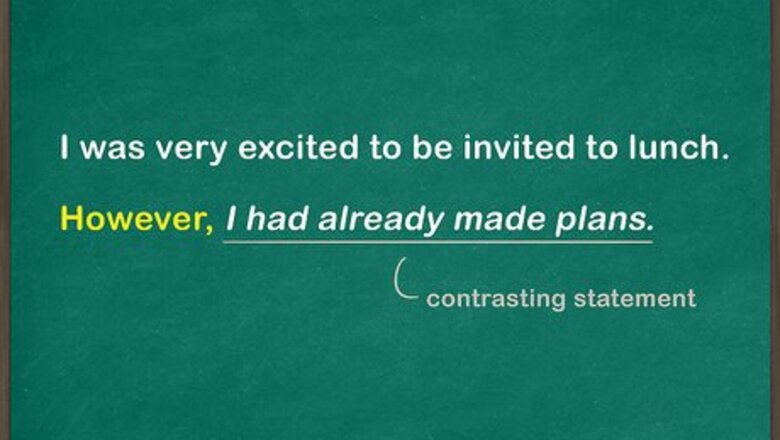
views
Using "However" to Introduce Contrast and Contradiction
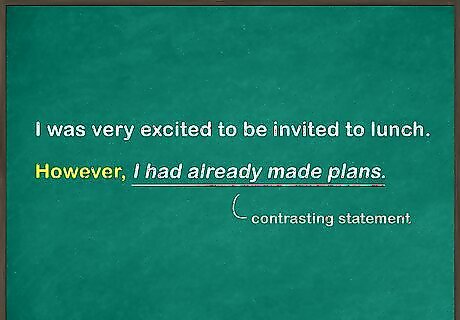
Begin a contrasting statement with "However,". To introduce a sentence that contradicts or contrasts with the previous sentence, start it with "However,…" This will alert your reader that a shift is forthcoming. Always put a comma after the "However," and follow it with a complete sentence. You might write, "I was very excited to be invited to lunch. However, I had already made plans." Another example could be, "The pattern was certainly original. However, the new wallpaper did not match the furniture at all."
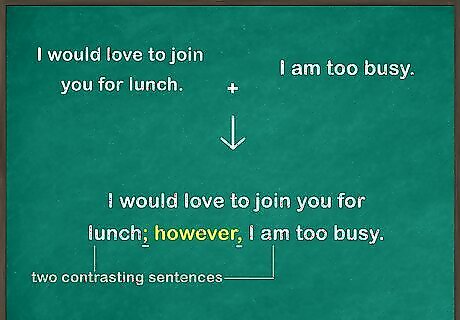
Join two contrasting sentences using "; however,". When you have two full sentences that are in opposition or contrast to one another, but are closely connected, join them with a semicolon, the word "however," and a comma. This shows that the second sentence is in opposition in some way to the first. Start with two sentences that contain opposition: "I would love to join you for lunch. I am too busy." Join them in this way: "I would love to join you for lunch; however, I am too busy." This will make the connections between the sentences obvious, and help your writing sound more cohesive.
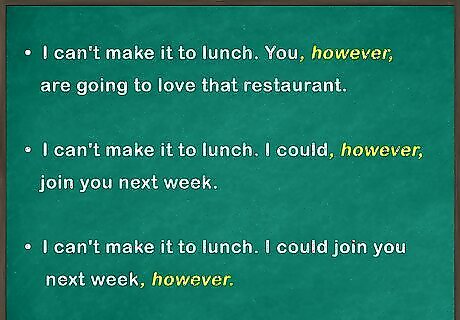
Use ", however," as an aside. To interrupt a sentence that is already in progress, insert "however" between two commas. Like other uses of "however," this implies a contrast to the previous content, but in a way that makes the contrast sound a little less crucial. Put ", however," after the subject of the second sentence: "I can't make it to lunch. You, however, are going to love that restaurant." Use it to divide a two-part verb: "I can't make it to lunch. I could, however, join you next week." Put it at the end of the second sentence: "I can't make it to lunch. I could join you next week, however."
Using "However" as a Relative Adverb
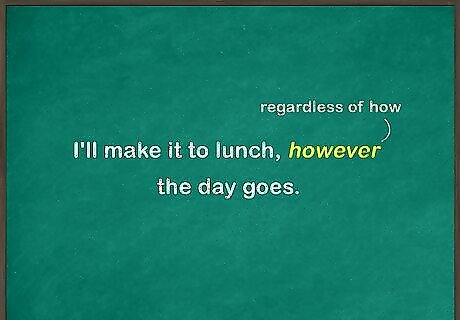
Use it to mean "regardless of how," or "in whatever way." When "however" is a relative adverb, it is used to express a lack of limits. It can be used to start a sentence, or inserted after a comma in a dependent clause. You could say, "However you look at it, we owe Puerto Rico significant aid." You may also write, "I'll make it to lunch, however the day goes." Check that you are using it correctly by replacing it with the phrases "regardless of how" or "in whatever way."
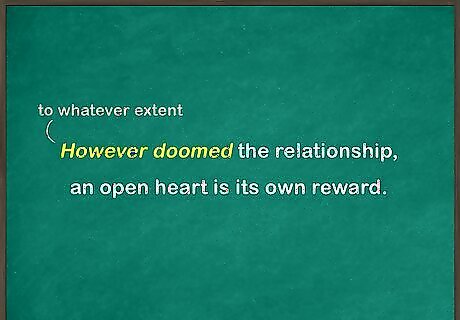
Pair it with an adjective or adverb. "However" can be used to express "to whatever extent" when paired with an adjective or adverb. You can write, "I'll call you from Tokyo, however much it costs." Another example could be, "However doomed the relationship, an open heart is its own reward."
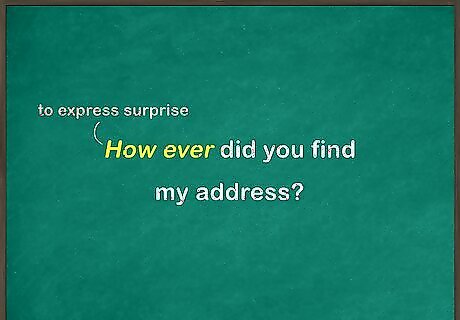
Start a question with "how ever" to express surprise. Use "how ever" to mean "in whatever way" when you wish to show surprise with the action described. As the "ever" is used as an intensifier, the words should be separated. You might write, "How ever did you find my address?"
Checking for Common Mistakes
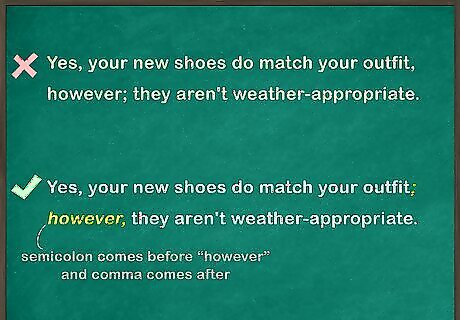
Make sure your semicolons and commas are in the right place. When you use "however" as a conjunctive adverb, remember that the semicolon comes before "however," and the comma comes after. Remember that two commas are not enough to contain a "however." Incorrect: "Yes, your new shoes do match your outfit, however; they aren't weather-appropriate." Incorrect: "Yes, your new shoes do match your outfit, however, they aren't weather-appropriate." Correct: "Yes, your new shoes do match your outfit; however, they aren't weather-appropriate."
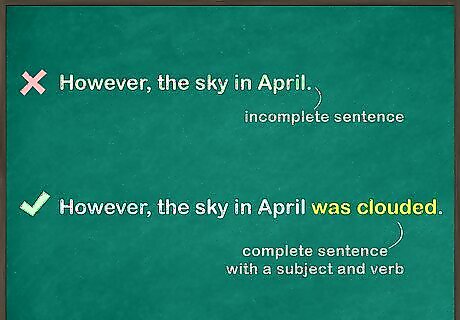
Watch for fragments. It's easy to write fragment sentences when you start them with, "However." If a sentence begins, "However, …" it needs to be followed by an independent clause! Check all your sentences that contain it to make sure they are complete. Incorrect: "However, the sky in April." This sentence has no verb, so it's not complete. Correct: "However, the sky in April was clouded." This sentence has a subject and verb, so it's complete.
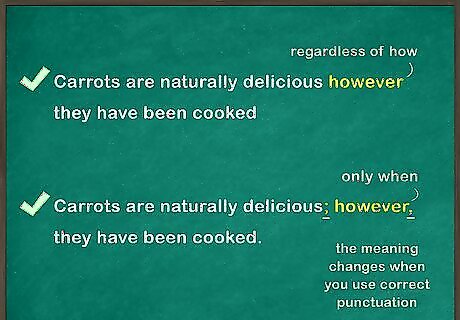
Check that you are saying what you mean. When using "however" as a relative adverb, a lot of the meaning will depend on the grammar. If you forget some punctuation, or put it in the wrong place, you could say something you don't mean. Notice how the meaning changes depending on where the punctuation is placed: "Carrots are naturally delicious however they have been cooked." "Carrots are naturally delicious; however, they have been cooked." If you mean that carrots are good in every form, the first option is correct. If you mean that carrots are good raw, but not when cooked, the second option is correct.
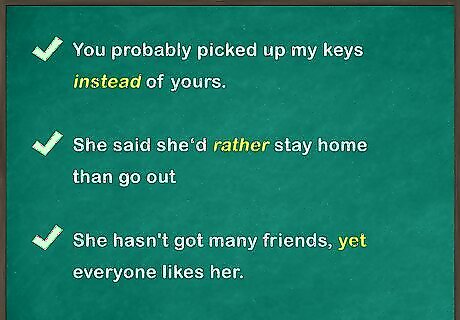
Don't over use "However," especially to start sentences. Restrict yourself to just a few uses per page. If you are beginning a sentence with "However," ask yourself if it would make more sense to connect it to the previous sentence using a semicolon and a colon. Use different conjunctive adverbs to lend variety and specificity to your paper, such as: Rather Instead Yet

















Comments
0 comment